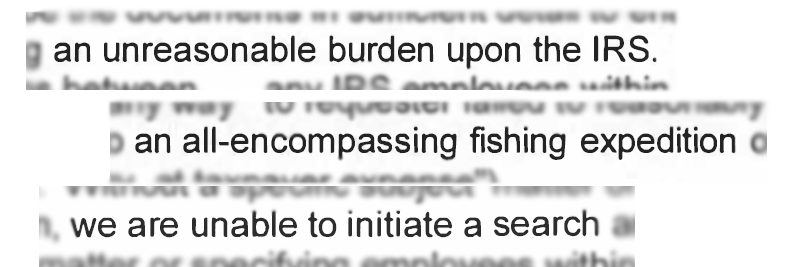Among people who know and use the Freedom of Information Act and similar laws to discover and report what the government is doing, this week is known as Sunshine Week, a time to promote government transparency. But a disorienting fog has settled in.
When was the last day that the news did not include a report about the President’s use of direct social media to avoid traditional press outlets whom he regularly disparages for using unlawfully leaked information to unfairly report what the government is doing and planning? Allegations abound that the administration regularly imposes unprecedented policies that restrict or remove access to government information and impede contacts between the press and knowledgeable civil servants. For example:
The administration’s anti-leak effort “targets not only national security departments and agencies but most federal bureaucracies from the Peace Corps to the Social Security Administration and the Education and Agriculture Departments.”
The administration’s “recent effort to stem leaks in the federal workforce doesn’t just exemplify … cluelessness. It verges on being a parody of it.”
The depth of dismay is hard to overstate. An executive editor of The New York Times put it this way: “I would say it is the most secretive White House that I have ever been involved in covering, and that includes — I spent 22 years of my career in Washington and covered presidents from President Reagan on up through now, and I was Washington bureau chief of the Times during George W. Bush’s first term.”
But none of the above-linked stories is about President Trump or current events. All of these complaints were written about President Obama early in his second term.
This selection of stories about how the Obama administration manipulated the media and restricted independent access to government information is representative. If anything, it’s too cautious. Readers can find much more, and much worse, reported by the most respected of voices. Even so, complaints about the relationship between the press and the Obama and Trump administrations and their unprecedented, programmatic restriction of access to information are strikingly similar. Perhaps such practices sting more sharply after a President takes the oath and starts to govern. Politico reports that the President’s aides are “obsessed with taking advantage of Twitter, Facebook, YouTube and every other social media forum, not just for campaigns, but governing.” Yet that story, too, was about President Obama, not President Trump.
Controlling information in service of a president’s political objectives is not new. It is not sui generis and did not spring forth fully formed like Athena from Zeus’s head—or President Trump’s. The current administration has taken another step in a well-known progression, and not a big one at that. In historical context we can recognize it without surprise as the next manifestation of Leviathan’s thirst for ever more power and control. Bob Schieffer, after decades as a Washington correspondent and broadcast news anchor, sums up the situation this way: “When I’m asked what is the most manipulative and secretive administration I’ve covered, I always say it’s the one in office now.”
Mike Geske is counsel at Cause of Action Institute
